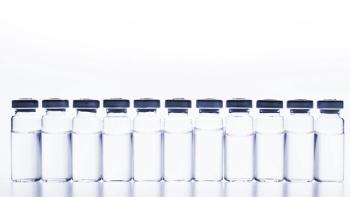
GlaxoSmithKline and iTeos Therapeutics enter into a development and commercialization collaboration worth up to $2.08 billion for a new therapeutic anti-cancer mAb candidate.

GlaxoSmithKline and iTeos Therapeutics enter into a development and commercialization collaboration worth up to $2.08 billion for a new therapeutic anti-cancer mAb candidate.

FDA has granted fast track designation to a GLP-1/glucagon dual agonist in development by Boehringer Ingelheim and Zealand Pharma for the treatment of NASH.

FDA has granted Janssen breakthrough therapy designation for teclistamab, an investigational bispecific antibody under development for treating relapsed or refractory multiple myeloma.

FDA has granted accelerated approval to Biogen for Aduhelm (aducanumab), a new mAb treatment for Alzheimer’ disease.

The emergence of new biotherapeutics is both the driver and result of innovative drug development technologies.

Both the European Commission and FDA have granted approval to GlaxoSmithKline’s Jemperli (dostarlimab) for treating endometrial cancer.

This new collaboration between Vyant Bio, Ordaōs Bio, and Cellaria mitigates risk in the drug discovery process using artificial intelligence and in-vitro “avatar” clinical trials.

A growing pipeline of gene therapy candidates aimed at treating neurodegenerative diseases has prompted new guidance.

Although a necessity, companies must strike a critical balance between protecting innovations with IP and providing affordable access to medicines.

The collaboration will focus on up to three types of lung and gastrointestinal cancers.

After a hectic 2020, biopharma looks to deliver on COVID-19 vaccines and move other promising therapies forward.

The agreement will provide capacity for the manufacturing of AZD7442, currently being developed for the potential prevention and treatment of COVID-19, at Lonza's Portsmouth, NH site.

Complex manufacturing processes pose challenges for final product inspection needed to ensure product integrity at commercial launch.

Bio/Pharma companies are galvanized to develop COVID-19 therapies under FDA’s acceleration program.

The acquisition will support the accelerated commercialization of Kyslecel (autologous pancreatic islets), Koligo’s personalized cell therapy for treating pancreatitis.

The collaboration will expand the manufacturing capacity for lenzilumab, a COVID-19 therapeutic candidate, in advance of a potential Emergency Use Authorization in 2020.

The agreement will Increase global manufacturing capacity for Novavax’s vaccine candidate, NVX-CoV2373, to more than two-billion annualized doses when at full capacity in 2021.

The agreement between the two companies will significantly increase global supply capacity for Lilly's potential COVID-19 treatments.

The companies have entered into a strategic partnership for the CMC development and manufacturing of Ansun’s biologics pipeline.

The companies provided an update stating that the biologic did not meet a primary endpoint in a Phase III clinical trial when compared with placebo in the treatment of COVID-19 patients.

The companies will collaborate on the production of a novel anti-SARS-CoV-2 immunoadhesin in iBio’s FastPharming manufacturing system.

Current and newer biologic modalities pose increasingly complex challenges to the detection and characterization of protein aggregates.

The company has appointed Liam Tayler as CEO to guide the growth of the company’s iPSC technologies, products, and services.

AbCellera’s recent acquisition of the OrthoMab bispecific platform is expected to accelerate antibody product development.

Many antibody-drug conjugate therapies are in the pipeline; only a handful have been approved. What are the bottlenecks?